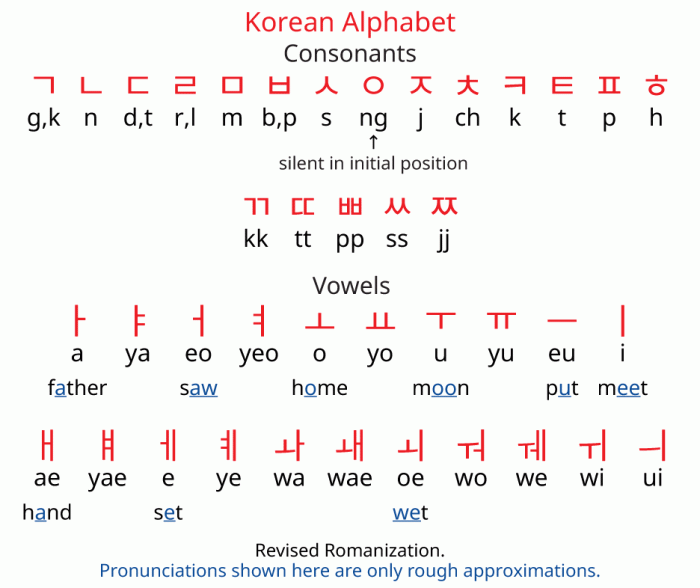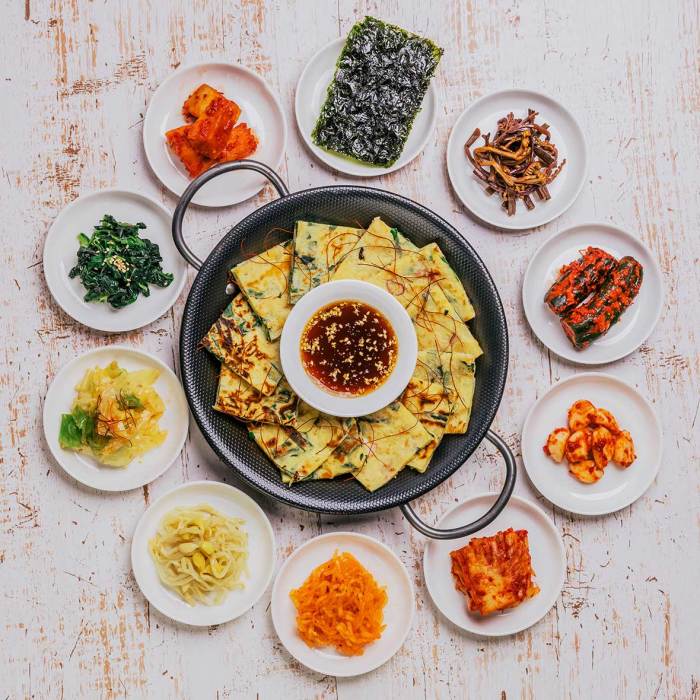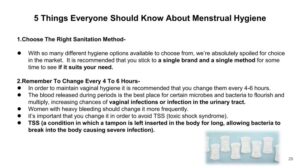
Korean beauty trends have taken the world by storm, captivating skincare enthusiasts and casual consumers alike. These trends not only showcase innovative products but also emphasize a holistic approach to beauty that intertwines health and wellness. As the fascination with K-beauty grows, understanding its core components can enlighten anyone looking to enhance their skincare routine.
From groundbreaking ingredients like snail mucin and ginseng to the profound influence of social media, the landscape of Korean beauty is continuously evolving. This exploration digs deeper into how these trends not only affect the skin but also promote mental well-being and self-care, offering a complete view of what it means to embrace beauty in today’s world.
Current Korean Beauty Trends
The Korean beauty industry continues to captivate global audiences with its innovative products and unique skincare routines. As trends evolve, the focus shifts towards harnessing nature’s best ingredients and the power of technology, making K-beauty a vibrant field of exploration and discovery. This landscape is not only influenced by traditional practices but also by the rapid pace of social media, which plays a crucial role in shaping consumer preferences and beauty standards.
Innovations in Korean Skincare Products and Techniques
Korean skincare has made significant strides in recent years, with brands introducing groundbreaking products and techniques that cater to diverse skin needs. Innovations such as cushion compacts and multi-functional products have transformed the way beauty enthusiasts approach their routines. The introduction of “skinimalism,” a trend emphasizing minimal and effective skincare regimens, showcases a shift towards simplicity without compromising on efficacy.
Notably, brands are also focusing on sustainable packaging, reflecting a growing awareness of environmental issues among consumers. The use of refillable containers and eco-friendly materials not only appeals to eco-conscious shoppers but also reinforces the commitment of Korean brands to social responsibility.
K-beauty Ingredients: Snail Mucin and Ginseng
The rise of unique ingredients is a hallmark of Korean beauty, with snail mucin and ginseng emerging as standout components in modern formulations.
- Snail Mucin: Renowned for its hydrating and repairing properties, snail mucin has gained popularity for its ability to promote cell regeneration and improve skin texture. This slimy secretion is packed with glycoproteins, hyaluronic acid, and glycolic acid, which collectively work to reduce the appearance of scars and fine lines, making it a staple in many K-beauty products.
- Ginseng: This ancient herbal ingredient is celebrated for its antioxidant properties and its ability to boost skin vitality. Rich in saponins, ginseng helps to improve blood circulation and enhance skin elasticity, contributing to a more youthful and radiant complexion. Its inclusion in serums and creams supports not only anti-aging efforts but also overall skin health.
Both of these ingredients highlight the focus on natural remedies within K-beauty, often leading to formulations that are free from harmful additives and are suitable for various skin types.
Influence of Social Media on Korean Beauty Routines
Social media platforms significantly impact the popularity and evolution of Korean beauty routines. Influencers and beauty enthusiasts share their skincare journeys, creating a ripple effect that drives trends and product launches. The rise of short-format videos on platforms like TikTok and Instagram has given way to quick tutorials and product reviews, making K-beauty techniques accessible to a broader audience. These platforms facilitate real-time engagement, allowing users to exchange tips and experiences, thus fostering a community around K-beauty.
“The combination of visual appeal and relatability on social media reshapes how consumers perceive and engage with beauty products.”
Additionally, brands are leveraging social media for marketing campaigns, often collaborating with popular beauty influencers to reach target demographics effectively. This dynamic interaction between brands and consumers amplifies product visibility and creates a sense of trust and authenticity in the beauty industry.
Connection Between Korean Beauty and Health

The intersection of Korean beauty and health is a significant aspect of the K-beauty phenomenon, emphasizing not just external appearance but also holistic wellness. Korean beauty trends advocate for nurturing the skin through a health-conscious approach, leading to a more radiant complexion and overall well-being. Korean beauty routines often incorporate principles of health, focusing on nourishing the skin and body with both topical and internal practices.
This commitment to skin health is reflected in the choice of products and the emphasis on natural ingredients that promote wellness. For example, many K-beauty products utilize plant-based extracts and fermented components, renowned for their skin-enhancing properties. These natural ingredients not only provide aesthetic benefits but also support the skin’s barrier function, reduce inflammation, and enhance hydration.
Natural Ingredients and Holistic Care
The use of natural ingredients in K-beauty is deeply rooted in traditional practices that prioritize holistic care. This approach is gaining traction as more individuals seek alternatives to chemical-laden products. Many K-beauty brands emphasize the importance of using ingredients derived from nature, leading to effective yet gentle formulations. Some prevalent natural ingredients include:
- Green tea: Known for its antioxidant properties, it helps to soothe and protect the skin from free radical damage.
- Honey: A natural humectant, honey moisturizes while providing antibacterial benefits, making it ideal for acne-prone skin.
- Snail mucin: Packed with glycoproteins, it aids in skin regeneration, hydration, and repairing damaged skin.
- Rice water: Rich in vitamins and minerals, rice water can brighten the skin and improve its texture.
These ingredients are often featured in products like masks, serums, and creams, highlighting a commitment to skin health through natural means.
Mental Health and Self-Care Routines
Korean beauty practices also integrate mental health considerations into their self-care routines. The act of caring for one’s skin is not merely a physical endeavor; it serves as a vital form of self-care that fosters mental well-being. Many individuals find solace and relaxation in the ritualistic nature of skincare, which can lead to reduced stress and improved mood.The concept of “Jinjja,” or “true beauty,” within Korean culture encompasses both outer beauty and inner peace.
This philosophy encourages individuals to engage in self-care practices that enhance their mental state, such as:
- Mindfulness during skincare routines, focusing on the sensory experience of applying products.
- Setting aside personal time for treatments, creating a calming environment that promotes relaxation.
- Incorporating aromatherapy with essential oils in skincare, which can uplift the spirit and reduce anxiety.
By intertwining beauty rituals with mental health practices, K-beauty not only enhances skin appearance but also nurtures emotional wellness.
“True beauty is a reflection of how we feel inside; caring for our skin is a pathway to nurturing our inner selves.”
Impact of Korean Beauty on Women’s Health and Fitness
The influence of Korean beauty standards has extended far beyond skincare routines, permeating various aspects of women’s health and fitness. These ideals often emphasize a holistic approach to beauty, where self-care is intimately connected to nutrition, lifestyle, and mental well-being. As women globally compare themselves to Korean beauty ideals, it is important to explore the effects of these standards on self-esteem and how they promote healthier lifestyle choices.
Comparison of Korean Beauty Standards with Global Beauty Ideals
Korean beauty standards are often characterized by youthful skin, delicate features, and a slim physique, which can differ significantly from Western ideals that may prioritize curves and a more robust body image. This divergence can lead to mixed impacts on women’s self-esteem. While some women are inspired to adopt K-beauty practices to enhance their appearance, others may feel pressured to conform to these stringent beauty standards.
The pressure to achieve the flawless “glass skin” look can foster both motivation and anxiety among women worldwide.
The impact on self-esteem can be profound. Korean beauty culture promotes an extensive skincare routine that encourages self-care, leading to increased self-esteem among those who embrace these practices. However, those who struggle to meet these standards may experience feelings of inadequacy.
Nutrition and Lifestyle Choices in Korean Beauty
Korean beauty places significant emphasis on nutrition and lifestyle as foundations for healthy skin. The Korean diet, rich in vegetables, fermented foods, and hydration, reflects how what we consume directly influences skin health. For instance, ingredients like kimchi and green tea are not only staples of the diet but are also known for their antioxidant properties.To support skin enhancement, Koreans often prioritize:
- Hydration: Drinking plenty of water is fundamental for maintaining skin elasticity and a healthy glow.
- Balanced Diet: Incorporating fruits, vegetables, and fermented foods supports gut health, which is linked to clearer skin.
- Skincare Supplements: Many women turn to collagen and vitamins to promote skin health from within.
By adopting such nutritional practices, women are not only enhancing their beauty but also promoting overall health, reinforcing the idea that beauty is a reflection of well-being.
Beauty and Fitness Trends in Korea
In Korea, there is a unique integration of beauty and fitness trends that contribute to overall health and skincare benefits. Popular workouts often focus on maintaining a slim silhouette while improving skin texture and tone. Activities such as Pilates, yoga, and dance-based fitness classes have gained traction, as they not only provide physical benefits but also mental relaxation, essential for maintaining a healthy glow.The following fitness trends are particularly notable for their connection to skincare:
- Pilates: Known for its emphasis on core strength and flexibility, Pilates helps improve posture, which can enhance overall appearance and boost confidence.
- K-Pop Dance Workouts: These high-energy sessions promote cardiovascular fitness and are a fun way for women to engage in exercise while staying connected to popular culture.
- Yoga: Emphasizing mindfulness, yoga promotes stress reduction, which can positively affect skin health by reducing stress-related breakouts.
Each of these fitness activities aligns with the philosophy that beauty is not just skin deep; it is intrinsically linked to how women care for their bodies and minds.
Last Recap

In summary, the wave of Korean beauty trends is not merely a passing craze; it represents a significant shift towards prioritizing health, wellness, and holistic care in beauty routines. By embracing these practices, individuals can cultivate a more profound relationship with their self-care rituals, ultimately leading to enhanced skin health and overall well-being. As more people turn to K-beauty for inspiration, the connection between beauty standards and lifestyle choices will likely continue to shape the industry.
Expert Answers
What are the key ingredients in K-beauty?
K-beauty often features ingredients like snail mucin, ginseng, hyaluronic acid, and green tea, which are celebrated for their beneficial properties on the skin.
How does social media influence Korean beauty trends?
Social media platforms help popularize K-beauty routines, making innovative products and skincare techniques accessible to a global audience.
Are K-beauty products suitable for all skin types?
Many K-beauty products are formulated to be gentle and effective, but it’s essential to choose products that cater to your specific skin type.
How do Korean beauty routines differ from Western beauty routines?
Korean beauty routines often involve multiple steps, focusing on hydration and prevention, while Western routines may emphasize coverage and quick fixes.
Can K-beauty improve mental health?
Engaging in self-care practices associated with K-beauty can promote relaxation and enhance mental well-being through routines that encourage mindfulness and self-love.





